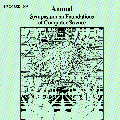We consider the Vector Scheduling problem on identical machines: we have m machines, and a set J of n jobs, where each job j has a processing-time vector $p_j\in \mathbb{R}^d_{\geq 0}$. The goal is to find an assignment $\sigma:J\to [m]$ of jobs to machines so as to minimize the makespan $\max_{i\in [m]}\max_{r\in [d]}( \sum_{j:\sigma(j)=i}p_{j,r})$. A natural lower bound on the optimal makespan is lb $:=\max\{\max_{j\in J,r\in [d]}p_{j,r},\max_{r\in [d]}(\sum_{j\in J}p_{j,r}/m)\}$. Our main result is a very simple O(log d)-approximation algorithm for vector scheduling with respect to the lower bound lb: we devise an algorithm that returns an assignment whose makespan is at most O(log d)*lb. As an application, we show that the above guarantee leads to an O(log log m)-approximation for Stochastic Minimum-Norm Load Balancing (StochNormLB). In StochNormLB, we have m identical machines, a set J of n independent stochastic jobs whose processing times are nonnegative random variables, and a monotone, symmetric norm $f:\mathbb{R}^m \to \mathbb{R}_{\geq 0}$. The goal is to find an assignment $\sigma:J\to [m]$ that minimizes the expected $f$-norm of the induced machine-load vector, where the load on machine i is the (random) total processing time assigned to it. Our O(log log m)-approximation guarantee is in fact much stronger: we obtain an assignment that is simultaneously an O(log log m)-approximation for StochNormLB with all monotone, symmetric norms. Next, this approximation factor significantly improves upon the O(log m/log log m)-approximation in (Ibrahimpur and Swamy, FOCS 2020) for StochNormLB, and is a consequence of a more-general black-box reduction that we present, showing that a $\gamma(d)$-approximation for d-dimensional vector scheduling with respect to the lower bound lb yields a simultaneous $\gamma(\log m)$-approximation for StochNormLB with all monotone, symmetric norms.
翻译:我们考虑的是相同机器的矢量调整问题: 我们有 m 机器, 和一套 n 工作, 其中每个任务 j 都有一个处理时间矢量 $p_ j\ 在\ mathbb{R\\\\\\\\\\\d\\\\\\\\\\\0}R\\\\\\\0} 美元。 目标是找到一个任务 $sgmax: J\\\\\\\\ in [d] (\ sum_\\\\\\\\\\\\\\\\\r} in [d} (\ sqr}:\\\\\\\\\\\\\\\\\\\\\\\\\\\\\\\\\\\\\\\\\\\\\\\\\\\\\\\\\\\\\\\\\\\\\\\\\\\\\\\\\\\\\\\\\\\\\\\\\\\\\\\\\\\\\\\\\\\\\\\\\\\\\\\\\\\\\\\\\\\\\\\\\\\\\\\\\\\\\\\\\\\\\\\\\\\\\\\\\\\\\\\\\\\\\\\\\\\\\\\\\\\\\\\\\\\\\\\\\\\\\\\\\\\\\\\\\\\\\\\\\\\\\\\\\\\\\\\\\\\\\\\\\\\\\\\\\\\\\\\\\\\\\\\\\\\\\\\\\\\\\\\\\\\\\\\\\\\\\\\\\\\\\\\\\\\\\\\\\\\\\\\\\\\\\\\\\\\\\\\\\\




